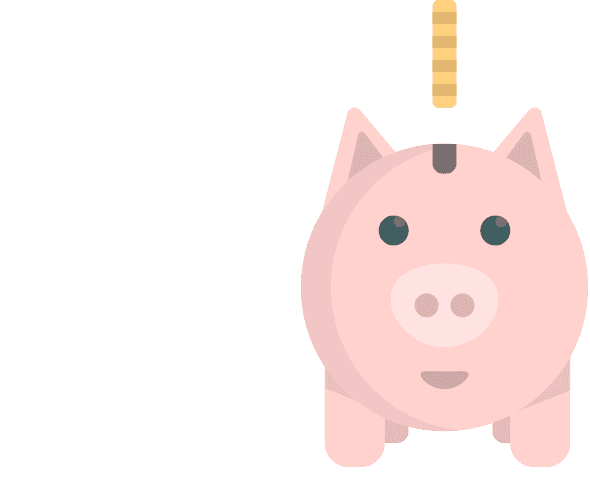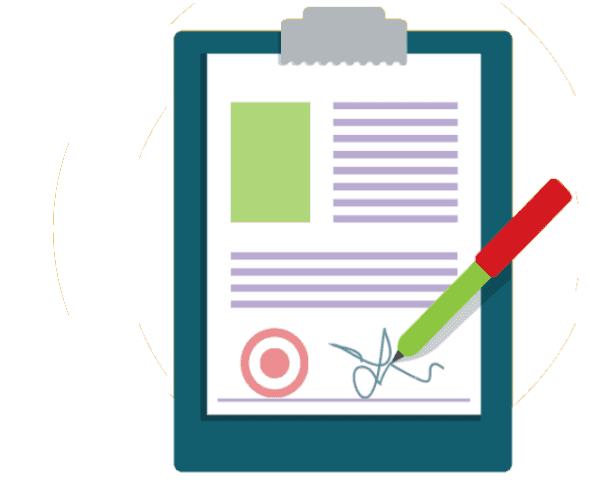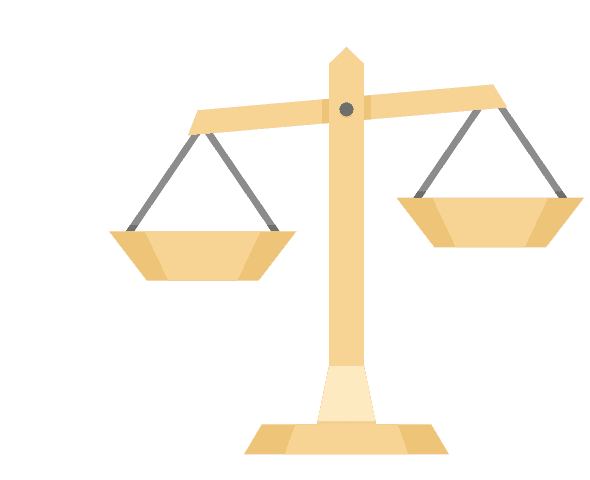HiI'm Jesse, one of the founders of Homewise. The idea started when I bought my first home a couple years ago, andrealized that the mortgage process anything but straighforward and on top of that itwas outdated, inefficient, lacked transparency. It really made me feel like I had no control. Our teamsaw that there was an opportunity to create a better experience for home buyers across Canada. One that is not only easier and online, but also provided more transparency, while setting the goal of getting our users the best mortgage (saving them money). Further than that, wewantHomewise to empower home buyers with knowledge and information to help them make better decisions. That is why we have manyarticles and resources to help throughout the process. The following article overviews the key things that I wish I knew before I bought my first home.
What a mortgage actually is
A mortgage is a large sum of money that is borrowed by a home buyer from a lender (like a bank or Credit Union) to pay for their home. To pay for the mortgage, the borrower will be charged an interest rate as a fee from the lender. Mortgages come in different sizes and are generally based on what the borrower can afford, which is determined through considerations such as financial situation, savings, debt and credit score.
There is are fixed and variable mortgages, I went with a fixed because it was better for me. We have a great article on this that you can visit here.
Get pre-approved!
When I was looking for a home, I thought I had a general idea of what I could afford, so I found a realtor and just went for it. That was my first mistake. Buying a home is a big deal, it is important to understand all of the intricacies that go into affordability - that is where pre-approval comes in. Pre-approval is a commitment from an institution (lender) that sets forth the parameters for which they'll lend you money, such as the rate. The most important criteria these institutions look at are; earnings, credit rating, and down payment size. Why is it important to get pre-approved?
Pre-approved helps to know exactly what the banks, lenders or credit unions are willing to lend you. Giving you a realistic expectation of what they can afford.
Realistic expectations make the purchasing process much smoother and less time consuming by streamlining the needs. This eliminates the need to visit homes that are unrealistic to the buyer.
If a buyer is not pre-approved, they risk purchasing a property and not getting approved for a mortgage if it is beyond their means. This can lead a buyer to lose their deposit.
Most importantly when it comes time to close on a property that's been purchased a pre-approval eliminates stress and lowers the amount of defaults from a lack of financing (not being able to get a mortgage)
Long story short, get pre-approved to get an idea of what you can afford and to ensure that when you do buy a home, you are confident that you will be able to get a mortgage.
Mortgage benefits beyond just rate
Rate is not everything! It is important, but trying to find a mortgage purely based on rate can lead to many issues, such as high penalties for switching/ending a mortgage early, or a lack of features to pay down your mortgage more quickly. These losses or savings are far greater than a few basis points on a percentage. Some examples of important features:
Amortization length: Typical amortization periods in Canada are 25 and 30 years. Choosing a 25 year amortization vs. a 30 year will save you a lot of money in interest.
On a $400,000 fixed rate mortgage at 3.5% switching from 30 to 25 years could save you over $40,000 in interest
Monthly prepayments: Adding more money to your mortgage payments (up to 100%). This enables you to pay off their mortgage principal more quickly and pay less interest
On a $400,000 fixed rate mortgage at 3.5%, adding $50 to your monthly payments will save you over $7,500 in interest
Lump sum payments: An annual lump sum payment against the principal of your mortgage of up to 15% or 20% of the total (depending on the lender). This lump sum goes directly to paying off your mortgage principal and therefore helps you pay less interest on your mortgage and save money.
On a $400,000 fixed rate mortgage at 3.5%, a yearly $1,000 lump sum payment will save you almost $12,000 in interest
Accelerated payments: As an example, accelerated bi-weekly payments have 26 payments for the year, which essentially enables a borrower to have 13 month's worth of payments a year. These extra payments are paying down principal more quickly than a conventional bi-weekly payment - which averages 26 payments into the 12 months of the calendar year. More payments per year leads to paying down principal more quickly, paying less interest and saving thousands of dollars.
On a $400,000 fixed rate mortgage at 3.5%, switching from a standard bi-weekly payment to an accelerate bi-weekly payment will save you over $25,000
To put the above into context, the difference in savings between a 3.4% and 3.5% $400,000 fixed mortgage is just over $6,300 in interest over the lifetime of your mortgage (that’s about $18 a month).
The importance of going to more than one lender
For my personal banking I have been with one of the big guys for years, but that is not where I got my mortgage. I used a mortgage broker who shoppedaround to multiple lenders and my bank definitely did not offer me the best mortgage. Not even close. That is a big reason why we created Homewise, because we realized how big of an opportunity it is to inform home buyers about shopping around for their mortgage (50% of Canadian's don't shop around). A big reason that people do not shop around is because they don’t know how to or don’t have the time. At Homewise we use technology and mortgage experts to shop around your mortgage for you with over 20 lenders, all with the goal of finding our users a great mortgage to meet their unique needs.
Those rate aggregation sites don’t tell the whole story
These are websites that post a bunch of different rates from various lenders, with their advertised lenders always rising to the top. Advertisements aside, I would highly suggest users not look at these rates as gospel. This is for many reasons:
These posted rates are not one-size fits all. So even though you may see a rate of 3.4% on their website, you may only qualify for the lenders 3.9% mortgage
Almost all inital rates that are shown are for “high-ratio mortgages” that are lower rate mortgage. However, these are for borrowers who have less than a 20% down payment and need to pay for mortgage insurance. That is less than half the market
Rate isn’t everything! Many of the best rates come with many restrictions and poor terms that can cost a home buyer a lot more in the long run.
Bank doesn’t mean best
My mortgage is with a Credit Union. Why? Well they had the best features, terms and rate for my unique needs. Many people think that bank means best, but often times they actually don’t offer the best mortgage. That is why we at Homewise use over 20differentlenders, from Banks to Monoline lenders and Credit Unions.
Closing costs
There are many costs of a home sale beyond just the down payment. This can be a shock to some home buyers, so it is important to review the following list and ensure that you not only have the down payment, but you are also prepared for all of the other associated costs.
Deposit - A deposit is payment that is required for your home purchase that is given directly to the seller. Cost: is often around 5% of the total home purchase For example, $25,000 on the purchase of a $500,000 home.
Home inspection - some buyers will have a conditional offer on a home based on a home inspection. The home inspector will generate a report that will assess the condition of the home. This allows potential homebuyers to get a full picture of the potential home they are buying as well as the extra costs and hidden issues they may not be aware of (i.e. old roof that will need replacing). Cost: $400-600
Appraisal - A fee that accesses the value of the home that is being purchased is in line with the purchase price. This protects the lender in the case that the buyer defaults on the mortgage. This fee is mandatory during the mortgage process and is sometimes covered by the lender. Cost: ~$300
Real estate lawyer and disbursements - One of the most important parts of the process. A real estate lawyer will prepare and record all official documents for the purchase. These will be the final documents that a homebuyer signs. The real estate lawyer will also be responsible for getting the keys from the seller. Cost: $500-2,500
Land transfer tax - All provinces (and some cities, such as Toronto) have a land transfer tax varied by location. It is calculated as a percentage of the purchase price of your home. First Time Home Buyers can get a rebate on their Land Transfer Tax in certain provinces, such as Ontario. (This can be roughly 1-1.5% of the price of your home. So it is a lot of money)
Title insurance - Protects against losses or issues that could arise if there is a property ownership dispute. Most lenders will require that a buyer purchases title insurance, which can be obtained through your lawyer or a notary. Cost: $150-300
Property insurance - A monthly or annual payment that is paid to cover the cost of replacing your home of any of it’s contents. This must be in place by closing day. Cost:
Prepaid utility or Property Tax bills - Sometimes, a seller will have paid property taxes or utility bills that are prepaid for the time that you will live in the home. Buyers will need to reimburse the previous owner for these payments.
Property tax - These payments, which can vary by municipality, are payments that are based on a percentage of the value of your home.
Some people will also pay
Mortgage default insurance - if your down payment is less than 20% of the price of your home, you will be required to pay Mortgage Default Insurance (CMHC Insurance). The role of this insurance is a protection for the lender in the case that the buyer defaults on their loan (cannot pay it off). It is processed through the mortgage.
PST on CMHC insurance (ON and QC) - this is a tax that is paid before close based on CMHC Insurance
Estoppel Certificate Fee - If you are buying a condo or strata unit, this is a certificate fee Cost: $100
Tax benefits
Buying a home does come with a lot of costs, so the government has made it slightly easier with a few tax benefits. First time home buyers, can apply for a Land Transfer Tax rebate from the government, as long as they qualify for it. The maximum provincial provincial (Ontario) LTT rebate is $4,000.
In addition to the provincial land transfer rebate, first time home buyers in Toronto can also apply for a land transfer tax rebate from the municipality. The maximum Toronto LTT rebate is $3,725.
All the documentation needed to get approved
Getting a mortgage requires a good amount of documentation and forms. These include tax forms, job letters and sales agreements. It is important to be informed as to what these documents are and how to get them. When my lender asked for the documents, I wish I had more information about not only what they were, but how to get them.
We have put together a simple post that overviews all of the documents that we may ask you for and where to get them - LINK
I hope this helps you in your process and we are hopeful that we can help you out further to get you a great mortgage! You can also start your mortgage application today in our simple 5 minute sign up then we will get to work negotiating with 20+ lenders for you to get a great mortgage!








